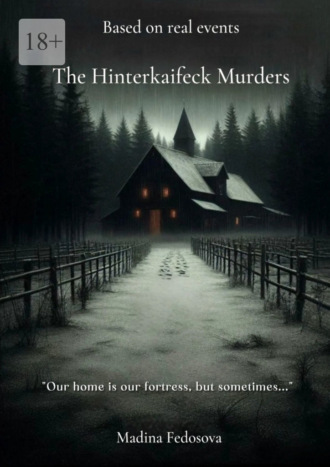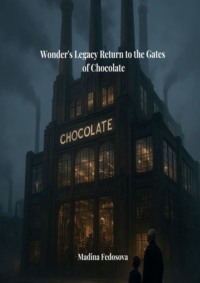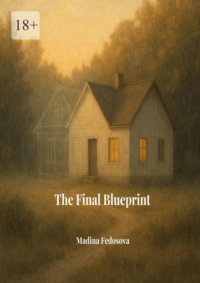
Полная версия
The Hinterkaifeck Murders
Inside the inn, it was always noisy and lively. Long wooden tables, roughly hewn, were placed throughout the hall, with peasants, artisans, and merchants sitting at them, sipping beer and exchanging news. In the corner, in front of a large fireplace, firewood crackled, warming the room and creating a cozy atmosphere.
But it wasn’t always peaceful. Sometimes, a rough cry would ring out, and a scuffle would begin. Andreas Gruber, the head of the family from Hinterkaifeck, was not a frequent guest, but when he appeared, the atmosphere changed noticeably. Drunk, irritable, he often found fault with other visitors, insulted them, and provoked them into fights. Hans, the innkeeper, tried to appease him, but Andreas was a stubborn and aggressive man.
«Well, Hans, pour me a mug of your best beer!» shouted a tall, lanky man in a worn leather jacket, sitting down at one of the tables. It was Josef, the local blacksmith.
At the next table, swaying, sat Andreas Gruber himself. His face, usually stern, was flushed from the beer he had drunk. His eyes gleamed with a feverish light, and his lips twisted into a mocking grin. He clutched his glass as if he were afraid it would be taken away from him.
«What’s wrong, men, have you lost heart?» he roared, his voice hoarse from drinking. «Come on, have fun! Drink while you can! Tomorrow, maybe, there won’t be time to drink…» His words hung in the air, like a bad omen.
Fritz, who was playing cards with Günther, glanced at Andreas, trying not to meet his gaze. «Everything’s fine, Andreas,» he muttered, hoping that this would appease Gruber.
But Andreas could not be stopped. «Everything’s fine? And on my farm…”, he stammered, his face contorted with anger, «On my farm, things are happening… Ghosts, at night, wandering around. I hear footsteps, creaks… It’s getting scary!» He laughed, but there was a note of hysteria in his laughter.
Hans, hearing this, frowned. He knew that Andreas was not a simple man. Lately, he had become suspicious, secretive, and had increasingly complained about strange incidents that supposedly took place on his farm.
«Andreas, you should sit at home, rest,» Hans tried to reassure him. «You’ve had too much today, you’ve completely lost your head.»
«Shut up, Hans!» roared Andreas, waving his arms. «It’s none of your business! It’s my life, and I’ll decide what to do!» He splashed the remains of his beer right on the table, causing Fritz and Günther to wince. «And you, cowards, sit here, trembling. Afraid of ghosts? Ha! I have…»
He did not have time to finish speaking when Josef, the blacksmith, rose from the neighboring table. His face, usually calm, was grim. «Andreas, you’re crossing all boundaries today,» he said, his voice firm and confident. «Behave yourself or get out of here.»
«Are you going to tell me what to do, you snot-nosed kid?» Andreas jumped to his feet, his eyes bloodshot. «I’ll show you…»
And then, before he could finish the sentence, he lunged at Josef. A scuffle broke out in the inn. Mugs clattered, chairs flew, shouts and curses were heard. Hans and his wife, Anna, tried to separate the fighters, but Andreas was too strong and fierce. The fight ended only when one of the peasants, seeing that Hans could not cope, dragged Andreas out of the inn, almost throwing him out onto the street. A loud bang of the front door echoed, and silence fell.
The inn became quiet, as if a hurricane had just passed through. People exchanged glances, straightened their clothes, and examined the broken mugs. Hans sighed heavily and began to clean up the aftermath of the fight. Everyone knew that Andreas Gruber was a dangerous man, and this night did not bode well.
A thick silence hung in the air, broken only by the crackling of firewood in the fireplace and the quiet whispers of the visitors. Hans silently swept up the shards of earthenware, his face darker than a thundercloud. Anna, clutching a rag in her hand, carefully wiped beer from the table, trying not to look towards the door behind which Andreas had disappeared.
Josef, the blacksmith, sat at his table, rubbing his bruised jaw. His face was grim, but his gaze was firm. He was not afraid of Andreas, but he understood that this night’s quarrel could have serious consequences. Gruber was a vindictive and vengeful man, and no one knew what he might take it into his head to do.
«So what will happen now?» Fritz asked quietly, turning to Günther. «This Andreas won’t let it go just like that.»
Günther shrugged, his face expressing anxiety. «Who knows what’s on his mind. They say he’s completely lost it.»
«Ghosts or no ghosts, it’s better not to mess with someone like that,» added Josef, interrupting their conversation. «We have to be careful. Especially those who live next to his farm.»
Hans, finishing cleaning up, approached their table, his face serious. «Josef, you’re right,» he said. «This Andreas has completely lost his head. I wouldn’t be surprised if he does something terrible. We have to report to the sheriff.»
«And what will the sheriff do?» Fritz scoffed skeptically. «Andreas is a rich farmer, he’ll always find a way to buy his way out. And then we’ll have to live with it…»
«Nevertheless, we have to do something,» Hans insisted. «We can’t keep silent. Otherwise, trouble can’t be avoided.»
But, as is often the case in small villages, fear and distrust prevailed over a sense of duty. No one wanted to interfere, no one wanted to incur the wrath of Andreas Gruber. Everyone preferred to pretend that nothing had happened, hoping that the storm would pass them by.
And outside the window, in the night darkness, stood the old oak, a witness to many generations of Groben residents. Its branches, like bony fingers, reached towards the sky, and its leaves rustled, as if whispering words of warning. But no one heard them.
Soon, the inn «At the Old Oak» was filled with noise and fun again. The musicians played a new melody, people began to dance, and life seemed to return to normal. But beneath the mask of merriment hid fear and anxiety. Everyone felt that something was wrong, that a dark shadow hung over Groben, which was soon to engulf this quiet and peaceful corner of Bavaria.
The villagers, despite the quarrel in the inn and the anxiety hanging over them, still clung to the hope of a better future, believed that the economic difficulties and the ominous shadow of Andreas Gruber would soon pass. Deep down, each of them cherished the dream of returning to the former calm and measured life, when they could not fear for their loved ones and not flinch at every night rustle. They continued to work diligently in the fields, hoping for a good harvest, prayed in the church, asking for God’s protection, and tried not to think about the bad.
It was in this contradictory atmosphere, in the quiet Bavarian village of Groben, far from big cities and noisy highways, where hope flickered, but fear was brewing, that the tragedy of the Hinterkaifeck farm unfolded. It burst into their lives like a bolt from the blue, destroying the illusion of safety and peace, and shocked not only little Groben, but all of Germany with its cruelty and mystery. Rumors of the brutal murder, of innocent victims, of evil that had settled in the heart of Bavarian land, spread with the speed of a forest fire, sowing panic and horror.
The Hinterkaifeck tragedy forever changed the lives of the residents of Groben. The trust and good neighborliness that had been the basis of their existence for so long were destroyed.
Neighbors began to look at each other with suspicion, fearing that a real monster might be hiding behind the mask of a respectable resident. Fear settled in their hearts, preventing them from sleeping peacefully at night. And even after years, when the wounds from the tragedy had healed a little, the memory of Hinterkaifeck continued to live in every house, reminding them of how fragile life is and how easily it can be destroyed. This tragedy left an indelible mark on the history of this small, unremarkable corner of Bavaria, turning it from a symbol of tranquility and peace into a symbol of horror and mystery, which has never been solved to the end.
Not so much the rumors of crime and lawlessness, of hyperinflation and famine, reaching them from the big cities – these news items came in fragmented pieces, as if someone was trying to tell about a nightmare but could not find the words – as much as the inexplicable, chilling fear hanging in the air, made people flinch at every rustle and lock their doors tightly at night.
Old Greta, whose face was etched with deep wrinkles, like a map of future misfortunes, sat by the window, watching the darkening twilight, and whispered to her neighbor, crossing herself:
«They say things are very bad in Munich… You can’t get bread,» whispered old Greta, and her voice trembled as if from a chill, although it was hot in the heated hut. She looked away from the window, behind which crimson twilight was thickening, as if not daring to face the impending disaster.
«And what will happen next?» asked the neighbor, Frau Schmidt, frightened, nervously fingering the cross on her chest. In her eyes, a primeval fear splashed, as if she felt the approach of something terrible, something she could not explain.
Greta was silent, listening to the silence, broken only by the crackling of firewood in the stove. «Next…» she croaked finally, and her voice sounded ominous, like the croaking of a crow. «Next, it will be worse. Hunger is not the worst thing. Evil… it’s already here. It hides in the shadows, waiting for its hour. And soon it will go hunting. Pray, Frau Schmidt. Pray that it passes us by. But I’m afraid… I’m afraid our prayers will not be heard.»
And on the very edge of the village, half a kilometer from Groben, at the very edge of the ominous Witch’s Forest, stood the Hinterkaifeck farm. It stood out against the background of the neat and well-kept houses of Groben, like a dark spot on a light background. A place that was whispered about behind their backs, a place that was avoided, especially after sunset.
The Hinterkaifeck farm… there were bad rumors about it, that the land there was cursed, that the harvest was never good, and that livestock often died for no apparent reason. As they used to say in Groben, not just evil lived there, but something ancient and powerful, something that was better not to disturb. They said that on moonlit nights, strange lights could be seen above the farm, and terrible howls could be heard from the forest. The Hinterkaifeck farm is a place where the light ends and darkness begins.
Chapter 4
The Farm at the Edge of the Forest
April 4, 1922 – a date that will forever remain branded into the memory of Groben and all of Bavaria. On this day, the peaceful sleep of the village was rudely interrupted by terrible news, sweeping through the surrounding area like a funeral knell. All the inhabitants of the Hinterkaifeck farm, located just a few kilometers from Groben, but in a completely different world from that which reigned in the peaceful village, were found brutally murdered.
The news of this event, passed on in whispers, was overgrown with gruesome details, chilling the soul. At first, they didn’t believe it, they thought it was fiction, scary stories. But when the rumors were confirmed, terror gripped their hearts.
Despite the fact that there had been much larger-scale crimes in the history of Germany, the Hinterkaifeck tragedy stood out for its particular, transcendental darkness. It not only shocked the public, but also touched the most hidden corners of the human soul.
The murders, committed with unimaginable cruelty, seemed to expose the darkest, wildest sides of human nature. The shadow of this evil hung over Groben, poisoning the air with fear and distrust.
Everything – the setting of the lost farm, surrounded by forest, cut off from the world, the chronology of the gruesome events unfolding over several days, the method of killing – blows with a mattock, from which there was no escape, even the fate of the bodies of the dead, left at the scene of the crime and not given to relatives for a long time – is literally imbued with some kind of oppressive hopelessness. As if death itself decided to play a cruel game, putting its darkest scenery on public display.
If Edgar Allan Poe, the master of mystery and horror, had lived in the twentieth century, he would have gladly used this plot for a story in the style of «The Fall of the House of Usher.» The Hinterkaifeck farm would have become his «House of Usher» – a dark, abandoned, cursed place, where terrible things happened under the cover of night. The inhabitants of the farm would be his characters, doomed to perish, and the investigation would be a journey into the depths of human madness. In every word, in every detail, one would feel the atmosphere of growing nightmare, the premonition of inevitable tragedy, and the feeling that evil lurks in the darkest corners of the human soul. But even Poe, perhaps, would not have been able to fully comprehend the mystery of Hinterkaifeck, a mystery that still haunts researchers and stirs the imagination.
In addition to the brutality of the murder itself, what horrified the residents of Groben and the investigation was another, even more disturbing circumstance: the killer, like a ghost, had lived on the Hinterkaifeck farm for months unnoticed. Not just broke into the house, committed the atrocity, and disappeared, but lived there, breathed the same air, ate the same food as his future victims.
This thought haunted the residents of the surrounding villages like a nightmare. It turned out that the monster could be hiding in any guise, be among them, pretending to be an ordinary person.
He, like a shadow, glided through the rooms of the farm, watching every movement of his victims. Studied their habits, their daily routine, their fears. He knew when they went to bed, when they got up, when they went to the field. He was invisible, hearing their every breath, every whisper, every word. He lived their life, but his heart was filled with hatred and malice.
He waited, like a predator lurking in ambush. He waited for the right moment to strike his deadly blow. He hatched his plan, preparing for the most terrible night in the history of Hinterkaifeck. This thought that the killer had been nearby for a long time, in close proximity to the victims, amplified the feeling of horror and helplessness. It turned out that no one was safe. Evil could be lurking around every corner, hiding behind a mask of benevolence, waiting for its hour to strike. This fact was not just frightening, it was paralyzing, instilling in the souls of the residents of Groben a chilling fear that did not let them go for many years.
But first things first, because chaos and confusion will not help to get closer to understanding this terrible story. First of all, it is necessary to reject superficial judgments and generally accepted truths, in order to, like a diver, plunge into this bottomless darkness and try to discern at least faint glimpses of the truth.
It is necessary to forget about the comfort of the familiar world, about safety and predictability, and step by step, word by word, detail by detail, try to understand: how could this happen? How could it happen that in the very heart of the Bavarian hinterland, far from wars and revolutions, a tragedy occurred, comparable in its cruelty only to ancient Greek myths?
How could it happen that in a family of six, loving and caring (or so it seemed), such a monster grew up, or did it penetrate from the outside, remaining unnoticed? How could it happen that the residents surrounding the Hinterkaifeck farm did not feel anything suspicious, did not hear cries for help, did not see signs indicating the impending disaster? How could it happen that the perpetrator, after committing such a terrible atrocity, remained uncaptured, unpunished, disappearing into the unknown?
To answer these questions, it is necessary to return to the past, to explore the life of the Gruber family, to study every aspect of it, from the simplest to the most mysterious.
It is necessary to carefully study the area, to understand the geography of Hinterkaifeck and its surroundings. It is necessary to listen to the testimonies of eyewitnesses, to analyze documents, to read letters and diaries that could shed light on this dark story. Only in this way, step by step, will we be able to approach the truth, understand the motives of the perpetrator, and unravel the mystery that still troubles the minds of people around the world. Only by plunging into darkness will we be able to find at least some glimmer of light.
Many who encounter the Hinterkaifeck case for the first time, or who have been trying to unravel its mystery for a long time, sooner or later, inevitably ask a question that seems simple at first glance, but in fact contains many mysteries: where was this ill-fated farm actually located? Where was this Hinterkaifeck, which has become synonymous with horror and despair?
The question of the location of the former farm, at first glance, may seem insignificant. However, knowing the exact location allows you to visualize the tragedy, to feel the atmosphere of those places, to understand how isolated this place was from the rest of the world. This allows you to better imagine the life of the Gruber family, their surroundings, their opportunities and limitations.
On the Internet and in various sources, you can find many conflicting reports about the exact location of the farm. Some claim that it was in the immediate vicinity of the town of Schrobenhausen, others – that it was lost in a remote forest, far from settlements. Some even indicate incorrect coordinates, misleading those who are trying to find the site of the tragedy on their own.
Despite the fact that the Hinterkaifeck farm has long ceased to exist (it was demolished shortly after the murder), the exact place where it once stood is of great importance for understanding the story. Knowing where the farm was located, you can imagine how difficult it was to live in such an isolated place, how vulnerable its inhabitants were in the face of danger, and how difficult it was for them to seek help if necessary.
In addition, knowing the exact location allows you to see the surroundings, which may have played an important role in the tragedy. The forest, the field, the road, the neighboring farms – all these details can provide a clue to the mystery of Hinterkaifeck, help us understand how and why this terrible atrocity happened.
The Hinterkaifeck farm (translated from Bavarian, the language of the local residents, as «the back part of Kaifeck»), as if cursed, stood in the backwoods of the Bavarian countryside, on the very edge of the forest, not far from the village of Groben. This place, as if deliberately chosen for solitude and isolation, was shrouded in silence and tranquility, but this silence, as it turned out, concealed something sinister.
Hinterkaifeck was a small isolated farming community. Families often lived on the same land for generations.
Despite its seemingly advantageous location in the heart of Bavaria, surrounded by fertile fields and picturesque forests, it was extremely difficult to call this place a lively corner. It was located approximately seven kilometers from the small town of Schrobenhausen, in the Weilheim-Schongau district, a picturesque but sparsely populated part of Bavaria. The nearest neighbors were quite far away, and the road to the farm was bumpy and difficult to pass, especially in winter.
The exact address, if it matters to those who are trying to find its trace: Hinterkaifeck, 86520, Germany. But at this address you will find only forest and emptiness, because the farm has long been demolished, and its territory has become overgrown with trees and shrubs. Only an attentive observer will be able to notice the barely noticeable traces of the foundation, reminiscent of the tragedy that unfolded here almost a century ago.
At the time of the tragic events of 1922, the farm belonged to the church parish of Waldau. And it was the priest from Waldau, Father Huber, who was one of the first to sound the alarm when the residents of Hinterkaifeck stopped appearing at Sunday services. This place, Hinterkaifeck, has become a curse for many, a symbol of evil that can hide in the most remote and quiet corners of the world.
The village of Groben, immersed in greenery and silence, was then, in the distant year of 1922, part of the larger town of Wangen. The administrative boundaries drawn on maps meant little to the residents of these places; their lives were centered around the fields, forests, and small farms. Subsequently, on October 1, 1971, Wangen, along with quiet Groben, became part of the larger community of Weilheim-in-Oberbayern, which was part of the process of reorganizing the administrative division of Bavaria. But in those years, when the Hinterkaifeck tragedy unfolded, this had no meaning. None of the residents of Groben cared about these administrative rearrangements; their concerns were completely different.
For the residents of Groben, and for the Gruber family living on the remote Hinterkaifeck farm, it was just a place, their world, limited by the horizon, separated from the rest of the world by fields and forest. A world where time flowed slowly and steadily, where centuries-old traditions intertwined with harsh peasant labor, where joys were simple, and worries were urgent. A world where everyone knew each other, where helping one’s neighbor was not just a duty but a necessity.
But beneath this apparent idyll lay a dark side. Isolation, superstitions, old grievances, and unresolved conflicts – all this accumulated over the years, creating a breeding ground for evil. The forest surrounding Groben and Hinterkaifeck did not just separate them from the rest of the world; it became a symbol of secrets and fears, a place where dark secrets lurked, ready to burst out and destroy the fragile world of the inhabitants of these places. And the Hinterkaifeck tragedy became a terrible confirmation of these fears.
If you now, in 2025, possessing knowledge of the impending tragedy, could travel back to Groben in the spring of 1922, to the very time when clouds were gathering over the Hinterkaifeck farm, and set out to go to this ill-fated homestead, your path would be challenging, but quite surmountable. You would start your journey from Eibergstrasse, the main street of Groben, passing through the center of the village.
Leaving the village, you would feel the asphalt you are used to walking on end, and under your feet would be a narrow, dusty dirt road, winding among the fields and copses. This road, like a snake, snaked towards the horizon, beckoning and at the same time frightening with its unknown. You would have to turn off Eibergstrasse onto this dirt road, leaving behind quiet and cozy Groben, plunging into the world of the rural backwoods.
Continuing along this dusty road, you would notice how the landscape gradually changes. The fields were replaced by sparse copses, the air filled with the smell of earth and wild herbs. And about half a kilometer from the road, rising above the surrounding landscape, you would see a solitary «windy spruce». This was an unusual spruce, with a curved trunk and branches, as if turned inside out by the wind. It served as a landmark for the locals, indicating the way to Hinterkaifeck.
Ahead, as far as the eye could see, stretched an endless panorama of the Bavarian countryside. Golden fields of wheat, already ready for harvest, alternated with emerald meadows, where cows grazed. Far on the horizon, dark forest massifs could be seen, like impregnable walls surrounding this quiet and peaceful world. But your attention would be riveted to one landmark, towering over this idyllic scene.
Your path lay to the lonely «windy spruce», visible from afar. This huge, ancient spruce seemed to have grown here since time immemorial, surviving generations of people and witnessing many historical events. It stood out from other trees, not only in its size, but also in its unusual appearance. Its mighty trunk was severely curved, as if in a perpetual struggle against the strong winds blowing from the mountains.
Passing the last houses of Groben, immersed in the greenery of gardens and orchards, you would feel the road, like a living being, begin to wind among the fields, leading you further and further into the Bavarian countryside. The world around you seemed to narrow, the horizon became closer, and darkness, even in the daytime, began to thicken, as if foreshadowing something sinister.









